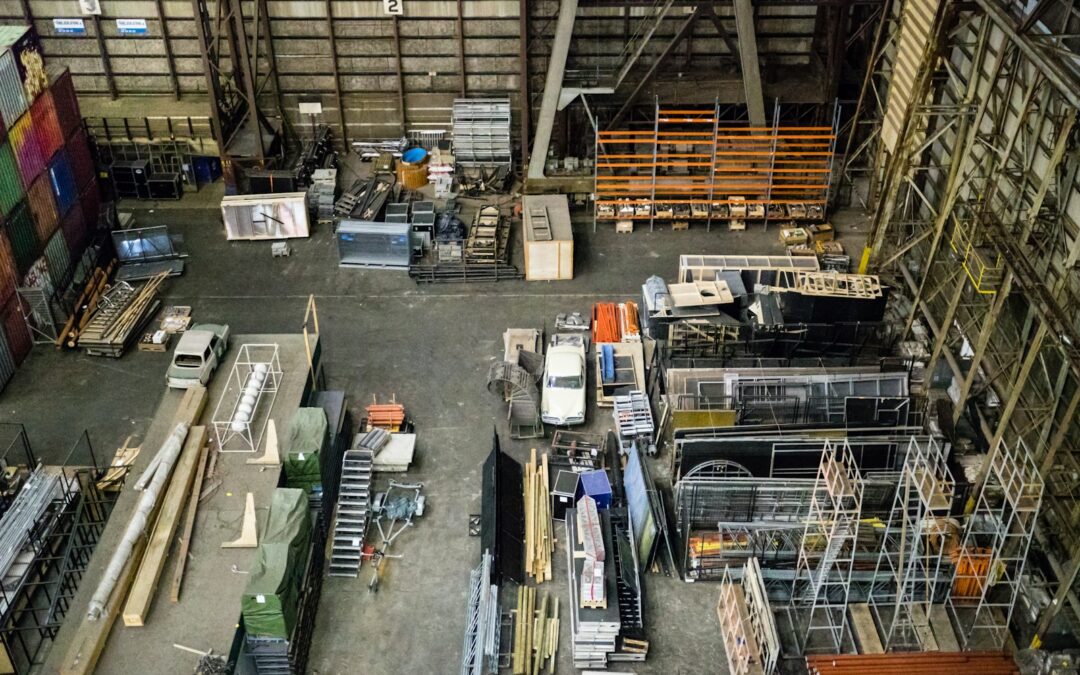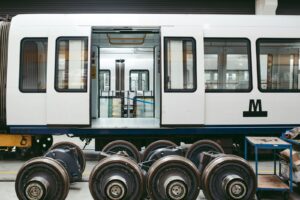Leveraging AI for Enhanced Efficiency in Swiss Manufacturing
The Role of AI in Optimizing Manufacturing Processes
AI in Swiss manufacturing is revolutionizing the way companies operate, bringing a new level of efficiency and innovation to the industry. By integrating artificial intelligence into their manufacturing processes, Swiss companies are not just automating routine tasks but also making data-driven decisions that significantly enhance overall business performance. For instance, AI-driven systems can predict equipment failures before they occur, allowing for preventive maintenance that reduces downtime and increases productivity. This proactive approach not only minimizes operational disruptions but also extends the lifespan of manufacturing equipment, leading to cost savings and improved efficiency.
Moreover, AI is being used to optimize supply chain management by analyzing large volumes of data to forecast demand, manage inventory, and streamline logistics. By having a more accurate understanding of supply and demand dynamics, companies can reduce waste and ensure that their production aligns closely with market needs. This level of optimization is particularly beneficial for Swiss companies that are known for their precision and high-quality standards. Ultimately, the integration of AI technologies is helping these businesses maintain their competitive edge in the global market, where efficiency and agility are key drivers of success.
AI also plays a crucial role in enhancing product quality. Machine learning algorithms can analyze data from various stages of the production process to identify defects or inconsistencies, allowing companies to make real-time adjustments. This capability is invaluable for Swiss manufacturers who pride themselves on delivering products of the highest quality. By catching defects early, companies can reduce the number of faulty products that reach customers, thereby enhancing their reputation and reducing costs associated with returns and repairs.
Impact of AI on Business Performance and Growth
Integrating AI into manufacturing processes is not just about enhancing operational efficiency; it also has a profound impact on overall business performance. Swiss companies leveraging AI are experiencing improved profitability, driven by cost reductions and enhanced productivity. For instance, predictive maintenance powered by AI reduces downtime and operational disruptions, which in turn leads to higher production rates and better utilization of resources. As companies optimize their manufacturing processes, they are able to produce more with less, a critical factor in boosting profitability.
Furthermore, AI enables Swiss manufacturers to be more responsive to market changes. By analyzing market trends and customer preferences, AI systems provide valuable insights that inform product development and marketing strategies. This agility allows companies to innovate rapidly and bring new products to market faster than their competitors. In a fast-paced global economy, the ability to adapt quickly is a significant competitive advantage. For Swiss companies, which often operate in highly specialized niches, AI-driven insights can help identify new opportunities for growth and expansion.
AI is also transforming workforce dynamics within the manufacturing sector. While there are concerns about automation leading to job losses, many Swiss companies are using AI to augment human capabilities rather than replace them. For example, AI can take over repetitive, mundane tasks, allowing workers to focus on more complex and strategic activities. This shift not only improves job satisfaction but also increases overall productivity as employees are empowered to contribute more meaningfully to the company’s goals. In this way, AI is not just enhancing manufacturing processes but also fostering a more engaged and skilled workforce.
AI-Driven Innovation in Swiss Manufacturing
Case Studies of AI Integration in Swiss Manufacturing
Several Swiss companies have already made significant strides in integrating AI into their manufacturing processes, demonstrating the transformative potential of this technology. For example, a leading Swiss watchmaker has implemented AI algorithms to enhance precision in the assembly process, resulting in watches that are not only aesthetically superior but also functionally robust. By analyzing data from various production stages, the company can identify and correct deviations in real time, ensuring that each timepiece meets the highest standards of quality.
Another example is a Swiss pharmaceutical company that uses AI to optimize its production line. By implementing machine learning models that analyze data from production equipment, the company can predict maintenance needs and optimize production schedules. This has led to a significant reduction in downtime and an increase in output, allowing the company to meet growing demand without compromising on quality. The use of AI in this context is not just about improving efficiency; it also enhances the company’s ability to innovate by freeing up resources that can be reinvested in research and development.
In the food and beverage industry, a Swiss chocolate manufacturer has adopted AI to ensure consistent quality in its products. By using AI to monitor and adjust variables such as temperature and ingredient ratios, the company can maintain the unique flavor profile that its brand is known for. This level of precision is essential in an industry where even minor deviations can affect the final product. The implementation of AI in this context demonstrates how Swiss companies are using technology not just to enhance efficiency but also to uphold the quality and tradition that their brands are built on.
Challenges and Future Outlook for AI in Swiss Manufacturing
While the benefits of AI in Swiss manufacturing are clear, there are also challenges that companies must navigate. One of the primary concerns is the need for a skilled workforce that can manage and maintain AI systems. As AI technologies become more complex, there is a growing demand for professionals with expertise in data science, machine learning, and software development. To address this skills gap, Swiss companies are investing in training programs and collaborating with educational institutions to develop the next generation of AI talent. These initiatives are critical for ensuring that Swiss manufacturing remains at the forefront of technological innovation.
Another challenge is the integration of AI into existing manufacturing processes. For many companies, implementing AI requires significant changes to their infrastructure and operations. This can be a costly and time-consuming process, especially for smaller firms with limited resources. However, the long-term benefits of AI integration—such as improved efficiency, cost savings, and enhanced product quality—make it a worthwhile investment. As more companies see the success of AI-driven initiatives, it is likely that adoption will continue to grow, driving further advancements in the industry.
Looking ahead, the future of AI in Swiss manufacturing is bright. With ongoing advancements in AI technology and increasing adoption by leading companies, the potential for further innovation is vast. From smart factories that can operate autonomously to AI-driven research and development that accelerates product innovation, the possibilities are endless. For Swiss companies, the key to success will be to continue embracing AI as a tool for enhancing their operations and driving business growth. By doing so, they can ensure that they remain competitive in an increasingly digital and interconnected global economy.
Conclusion
AI in Swiss manufacturing is not just a trend; it is a transformative force that is reshaping the industry. From optimizing production processes to enhancing product quality and driving business performance, the impact of AI is profound. As Swiss companies continue to explore and integrate AI technologies, they are setting new standards for efficiency, innovation, and excellence in manufacturing. The future of Swiss manufacturing lies in its ability to harness the power of AI, and those who do will be well-positioned to thrive in the digital age.
—
#aiinswissmanufacturing, #swissmanufacturing, #ai, #artificialintelligence, #businessperformance, #digitaltransformation, #switzerland













